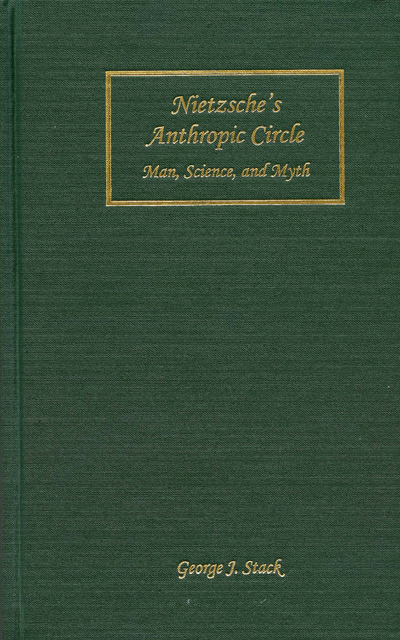Book contents
- Frontmatter
- Dedication
- Contents
- Preface
- Editions and Abbreviations
- 1 Anthropomorphic Projection
- 2 Agnosticism
- 3 A Dynamic Theory of Nature
- 4 Perspectivalism: Knowledge/Interpretation
- 5 Fictionalism in Science
- 6 The Structuralist Perspective
- 7 Evolutionary Epistemology
- 8 Tragic Knowledge and a Will-to-Power Psychology
- 9 The Cosmic Will to Power as Fable
- Notes
- Selected Bibliography
- Index
3 - A Dynamic Theory of Nature
Published online by Cambridge University Press: 23 March 2023
- Frontmatter
- Dedication
- Contents
- Preface
- Editions and Abbreviations
- 1 Anthropomorphic Projection
- 2 Agnosticism
- 3 A Dynamic Theory of Nature
- 4 Perspectivalism: Knowledge/Interpretation
- 5 Fictionalism in Science
- 6 The Structuralist Perspective
- 7 Evolutionary Epistemology
- 8 Tragic Knowledge and a Will-to-Power Psychology
- 9 The Cosmic Will to Power as Fable
- Notes
- Selected Bibliography
- Index
Summary
Like geometry each scientific theory is our own, human.
R. J. Boscovich, Theory of Natural PhilosophyAlthough interpretations of Nietzsche's philosophy often allude to the theory of nature propounded by the Serbo-Croatian physical theorist Roger Boscovich, there have been few attempts (until recently) to see whether there is a strong relationship between Boscovich's theoretical physics and what has sometimes been called Nietzsche's “cosmology” or “physics.” In addition, the close relationship between central conceptions in dynamic theories of nature and Nietzsche's conception of the will to power has not often been explored. Although Nietzsche rarely refers to Boscovich by name, the enthusiasm he expresses for his theory of nature finds its way into remarks in Beyond Good and Evil and occasionally in his notes.
Boscovich's Theory of Natural Philosophy anticipated a number of themes in twentieth-century physical theory. Working against the background of the triumph of Newtonian mechanics, Boscovich challenged some of its key principles. And he developed an imaginative theory of matter that anticipated and provided the groundwork for a field theory of physical action. On the basis of his study of bodies in collision, Boscovich formulated a theory of the structure of matter that postulated dimensionless, indivisible “points of force.”
Boscovich focused upon themes that came to fruition only in the general theory of relativity and quantum physics. He regarded Newton's system as a generally accurate description of the universe, but held that the law of gravitation was a “classical limit” that was approximately accurate as applied to extensive distances. He maintained, however, that for phenomena of atomic size Newton's classical law was insufficient. At the atomic level forces of attraction are replaced by continuous oscillations between both attractive and repulsive physical forces.
The development of the idea of a pervasive “will to power” present in all dynamic entities can be traced, in Nietzsche's thought, from his critical insight into the psychological drive for power over others as a kind of overcompensation for feelings of inferiority or as an expression of ressentiment to his empirically derived assumption that there is a biophysiological drive to master an environment or strive for dominance.
- Type
- Chapter
- Information
- Nietzsche's Anthropic CircleMan, Science, and Myth, pp. 42 - 59Publisher: Boydell & BrewerPrint publication year: 2005

